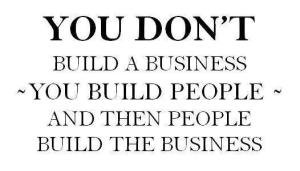Managers today play a vital role in talent management. Gone are the comprehensive career management systems and expectations of long-term employment that once functioned as the glue in the employer-employee contract. In their place, the manager-employee dyad is the new building block of learning and development in firms. Good managers attract candidates, drive performance, develop, engage and retain people, and play a key role in maximizing employees’ contribution to the firm.
Employee Development Planning is often the most neglected yet important aspect of management. For many reasons this valuable activity gets ignored –
- Managers tend to focus more on here and now vs future. Businesses operate in such dynamic environment that managers naturally focus more on day to day operational issues rather than thinking long term which may have less certain consequences.
- Most organizational processes turn out to be so bureaucratic, time consuming and confusing that managers are just satisfied to finish them. There is hardly any time spent to create something constructive from the whole data.
- There is just never enough time to do the job. Managers keep struggling to cope up with business exigencies and fire fighting.
Managers understand that taking genuine interest in the future of their team members builds loyalty, engagement and drives productivity. Some of the key tools that can be used by the managers in their day to day routine to help develop their team members are discussed below:
- Feedback – Regular, timely and objective feedback is the most impactful way of helping employees understand their current strengths and development areas which can be the base of development planning. Setting a rhythm to discuss performance, progress and pitfalls with employees provides them with confidence about their future.
- Coaching – It is a powerful way to help employee achieve an important goal! Managers can either themselves take up the role of a coach or assign someone within the organization as a coach to support employee’s growth and development. Coaching is goal oriented, time bound, skill/ task related intervention which provides guidance and support to experiment, explore and facilitate learning.
- Mentoring – It is long term relationship oriented tool. It focuses on skill/ career/ professional development of employee. Mentor can span the role of coach, motivator, role model, provider of contacts etc. Usually mentors don’t have direct working relationship with the employee so that confidentiality and trust are maintained.
- Networking – Providing ample opportunities to participate in cross functional meets, projects, presentations, trainings etc. to facilitate cross pollination of learnings. I helps brings fresh ideas, knowledge, thoughts and enrichment to routine job.
Using a healthy combination of such interventions ensure a deep connect with the employee and the organization. They also help in complementing other formal employee development initiatives like trainings, certifications etc. to create a holistic development model.

